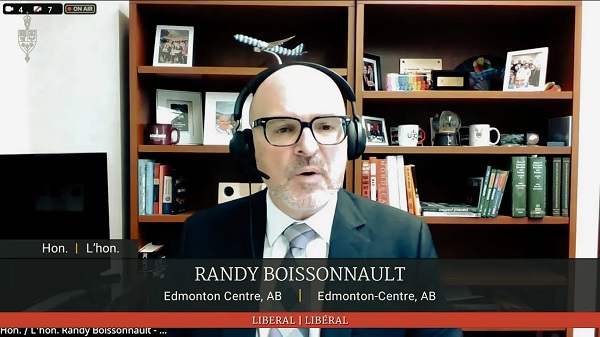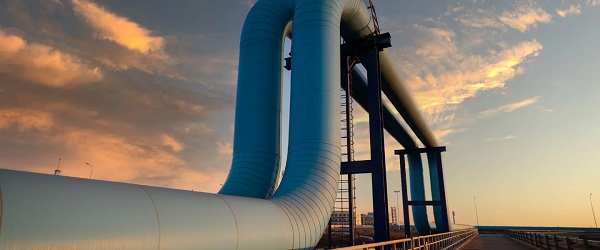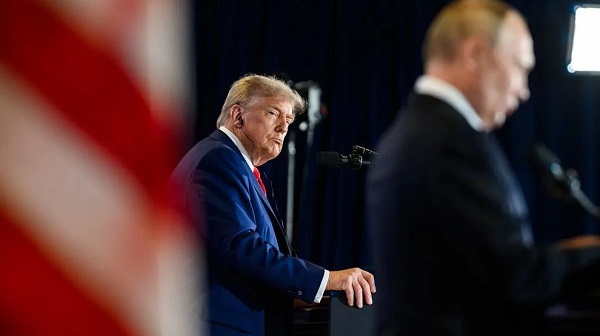National
Randy Boissonnault and the Liberal Scandal That Won’t Go Away

Standing Committee on Indigenous and Northern Affairs: How Fraud, False Identity Claims, and Liberal Entitlement Expose a System Rigged Against Canadians
Ladies and gentlemen, today, we take a closer look at what happens when the carefully constructed facade of Justin Trudeau’s Liberal Party crumbles. This isn’t just a scandal about one man’s lies—it’s about a government-wide culture of entitlement, deception, and corruption that prioritizes Liberal insiders over the hardworking Canadians they claim to represent.
Why are we here? Because a man named Randy Boissonnault—a former Liberal cabinet minister and trusted Trudeau ally—has been caught at the center of a scandal involving fraudulent business dealings, false claims of Indigenous identity, and federal contracts stolen from real Indigenous businesses. The setting? The Standing Committee on Indigenous and Northern Affairs, where Boissonnault faced over two hours of questioning from MPs determined to get to the truth.
But did we get the truth? Absolutely not. What we got was a masterclass in Liberal arrogance, evasion, and deflection.
At the heart of this controversy is Boissonnault’s involvement in a company called Global Health Imports (GHI), which falsely claimed to be Indigenous-owned in order to win lucrative federal contracts. For years, Boissonnault portrayed himself as a “non-status adopted Cree” based on vague family anecdotes. This label, of course, conveniently blurred the lines, allowing him to gain credibility in Indigenous spaces while avoiding legal scrutiny. Not only did GHI fraudulently secure taxpayer money meant for Indigenous businesses, but Boissonnault’s name and supposed Indigenous heritage were plastered all over Liberal Party campaign materials. For years, the Liberals actively promoted him as Indigenous, exploiting the very communities they claim to champion.
When the media and whistleblowers finally exposed the truth, Boissonnault resigned from his cabinet position. And now, he’s here, at INAN, supposedly to set the record straight. Spoiler alert: he didn’t.
Boissonnault’s opening statement was a lesson in political deflection. He apologized—not for the harm done to Indigenous communities or Canadian taxpayers, but for the “confusion” around his identity. He insisted he never claimed Indigenous status, despite evidence to the contrary, and described his use of the term “non-status adopted Cree” as an effort to honor his adoptive family’s supposed heritage—a claim Indigenous researchers have outright denied.
When pressed on his involvement with GHI, Boissonnault claimed ignorance. He told the committee he left the company in 2021 and had no idea his name was being used to secure fraudulent contracts. Really? We’re supposed to believe that a man who co-owned 50% of the company and whose name was actively used in business dealings was completely unaware of its activities? Either he’s lying, or he’s astonishingly incompetent.
It gets worse. When asked why he hasn’t sued his former business partner, Mr. Anderson, for allegedly using his name without consent, Boissonnault offered the weakest excuse imaginable: he’s “consulting legal counsel.” Months have passed since this scandal broke, and he still hasn’t taken a single step to clear his name. If someone stole your identity to commit fraud, wouldn’t you act immediately?
Thankfully, not everyone in the room was willing to let Boissonnault off the hook. Conservative MPs Michael Barrett and Martin Shields led the charge, relentlessly exposing Boissonnault’s contradictions and demanding accountability. Barrett zeroed in on Boissonnault’s failure to take legal action against GHI, calling it a clear sign of either complicity or cowardice. Shields turned his focus to the systemic failures that allowed this fraud to happen in the first place, pointing out the Liberal government’s negligence in safeguarding programs designed to support Indigenous communities.
Meanwhile, Bloc MP Nathalie Sinclair-Déguin and NDP MP Lori Idlout focused on the harm done to Indigenous communities. They highlighted how fraudulent activities like GHI’s undermine trust, reconciliation, and real opportunities for Indigenous businesses. They also demanded systemic reforms, like stricter oversight and verification processes, to prevent future abuses.
Of course, no Liberal scandal would be complete without the party’s MPs running interference. Enter Ben Carr and Anna Gainey. Carr used his time to praise Boissonnault’s “allyship” and steer the conversation away from fraud and deception. Gainey, who didn’t even bother to show up in person, framed the controversy as a “learning opportunity” for Boissonnault and the government. Neither of them asked a single hard question. They weren’t there to seek answers—they were there to protect their colleague and the Liberal Party brand.
Final Thoughts
Let’s be blunt. What we witnessed at the INAN hearing wasn’t just a scandal about Randy Boissonnault—it was a damning indictment of Justin Trudeau’s Liberal regime and its entire culture of corruption, entitlement, and betrayal of the Canadian people.
Think about what’s at stake here. We’re not talking about a minor oversight or a simple mistake. We’re talking about a Liberal insider who exploited a sacred cause—reconciliation with Indigenous peoples—for personal and political gain. A man who co-founded a company that defrauded taxpayers, deprived Indigenous businesses of opportunities, and damaged trust between the government and the communities it claims to support. And yet, instead of taking responsibility, he shows up to a committee hearing and feeds us a steady diet of deflection and excuses.
But let’s not just focus on Boissonnault. What about the rest of the Liberal Party? A party that promoted him as Indigenous in their campaigns, used his fabricated narrative to boost their image, and now refuses to hold him accountable. What we saw at the hearing was a carefully orchestrated performance. Liberal MPs didn’t ask hard questions because they didn’t want answers. Their job was to protect Boissonnault, protect the party, and protect their grip on power.
And here’s the tragic part: the real victims of this scandal aren’t sitting in Ottawa’s plush committee rooms. They’re the Indigenous entrepreneurs who lost out on contracts, the taxpayers who unknowingly funded this fraud, and the millions of Canadians who believed in a government that promised to do better.
This isn’t just a Randy Boissonnault problem. This is a Liberal problem. A systemic problem. A Trudeau problem. It’s about a government that’s so addicted to power, so comfortable with corruption, that they don’t even bother hiding it anymore.
But here’s the good news: Canadians are waking up. They’re seeing through the Liberal lies and realizing that the system isn’t broken—it’s rigged. Rigged for the insiders, the cronies, and the friends of Justin Trudeau.
So what happens next? That’s up to you, Canada. You have a choice. You can let this scandal fade into the background like so many others before it. Or you can demand better. Demand accountability. Demand a government that works for you, not for itself.
Please consider subscribing to The Opposition with Dan Knight .
Support our journalism and enjoy the full experience, upgrade your subscription.
Energy
National media energy attacks: Bureau chiefs or three major Canadian newspapers woefully misinformed about pipelines

From the Fraser Institute
These three allegedly well informed national opinion-shapers are incredibly ignorant of national energy realities.
In a recent episode of CPAC PrimeTime Politics, three bureau chiefs from three major Canadian newspapers discussed the fracas between Alberta Premier Danielle Smith and Prime Minister Mark Carney. The Smith government plans to submit a proposal to Ottawa to build an oil pipeline from Alberta to British Columbia’s north coast. The episode underscored the profound disconnect between these major journalistic gatekeepers and the realities of energy policy in Canada.
First out of the gate, the Globe and Mail’s Robert Fife made the (false) argument that we already have the Trans Mountain pipeline expansion (TMX), which is only running at 70 per cent, so we don’t need additional pipelines. This variant of the “no market case” argument misunderstands both the economics of running pipelines and the reality of how much oilsands production can increase to supply foreign markets if—and only if—there’s a way to get it there.
In reality, since the TMX expansion entered service, about 80 per cent of the system’s capacity is reserved for long-term contracts by committed shippers, and the rest is available on a monthly basis for spot shippers who pay higher rates due largely to government-imposed costs of construction. From June 2024 to June 2025, committed capacity was fully utilized each month, averaging 99 per cent utilization. Simply put, TMX is essentially fully subscribed and flowing at a high percentage of its physical capacity.
And the idea that we don’t need additional capacity is also silly. According to S&P Global, Canadian oilsands production will reach a record annual average production of 3.5 million barrels per day (b/d), and by 2030 could top 3.9 million b/d (that’s 500,000 b/d higher than 2024). Without pipeline expansion, this growth may not happen. Alberta’s government, which is already coordinating with pipeline companies such as Enbridge, hopes to see oilsands production double in coming years.
Next, Mia Rabson, Ottawa deputy bureau chief of the Canadian Press, implied that Smith’s proposal is not viable because it comes from government, not the private sector. But Rabson neglected to say that it would be foolish for any company to prepare a very expensive project proposal in light of current massive regulatory legislative barriers (tanker ban off B.C. coast, oil and gas emission cap, etc.). Indeed, proposal costs can run into the billions.
Finally, Joel-Denis Bellavance, Ottawa bureau chief of La Presse, opined that a year ago “building a pipeline was not part of the national conversation.” Really? On what planet? How thick is the bubble around Quebec? Is it like bulletproof Perspex? This is a person helping shape Quebec opinion on pipelines in Western Canada, and if we take him at his word, he doesn’t know that pipelines and energy infrastructure have been on the agenda for quite some time now.
If these are the gatekeepers of Canadian news in central Canada, it’s no wonder that the citizenry seems so woefully uninformed about the need to build new pipelines, to move Alberta oil and gas to foreign markets beyond the United States, to strengthen Canada’s economy and to employ in many provinces people who don’t work in the media.
Business
$15B and No Guarantees? Stellantis Deal explained by former Conservative Shadow Minister of Innovation, Science and Technology

Rick Perkins reveals what billions in subsidies didn’t buy: job protections, clawbacks, or Canadian hiring guarantees.
For weeks, Canadians were told, confidently, smugly, that the $15 billion handed to Stellantis and Volkswagen was protected by “job clauses” and “performance-based contracts.” That’s the line Industry Minister Mélanie Joly repeated in interviews, press releases, and on social media. It’s a lie.
Yesterday, we sat down with former Member of Parliament Rick Perkins one of the few people who actually read the unredacted contracts in question and he laid it out plainly: those job guarantees don’t exist. Not in the way you were told. Not even close.
“There is no cancellation clause,” Perkins said.
“The ‘job commitments’ are maximums, not minimums. And the contracts don’t require those jobs to be Canadian or even union.”
Let that sink in.
We were sold a vision of a green industrial renaissance, Canadian workers building Canadian batteries in Canadian factories, funded with Canadian taxpayer money. Instead, we’ve bankrolled foreign-owned companies to build batteries with no guarantee they’ll hire local workers, or that the batteries will even be sold in Canadian vehicles.
And here’s the kicker: the federal government is already writing monthly subsidy cheques, covering 100% of the cost per battery, based on production volume, not sales. That’s right. You and I are footing the bill whether those batteries go into a Dodge Ram, a Chinese-market minivan, or sit on a warehouse shelf until 2032.
No wonder the production subsidy contract is only 26 pages long. There wasn’t much in it.
Minister Joly claimed there are “performance conditions” and “job guarantees.” But as Perkins told us, those words are political wallpaper not legal obligations. There’s no enforcement mechanism. There’s no clawback clause. There’s no language saying, “You must hire X Canadians or repay the money.” It’s not there.
And that’s what this government doesn’t want you to understand. It’s not just that they wasted your money, it’s that they did it knowingly.
They gambled billions on the assumption that Joe Biden would remain in power, that EV mandates would keep growing, and that Trump wouldn’t come back. Now that he has, with tariffs, deregulation, and a clear “America First” energy agenda, these companies are doing what any rational business would do: they’re leaving.
And there’s nothing in the contract stopping them.
If you’re wondering why the mainstream media isn’t shouting this from the rooftops ask yourself who cashes the cheques. Ask yourself why no journalist has demanded to see the full, unredacted documents. Ask why Minister Champagne hasn’t been hauled before a committee and asked under oath whether he even read the damn contract before signing.
We did what they wouldn’t. We got the receipts. We sat down with someone who saw the deal with his own eyes. And here’s what he told us: it’s worse than you think.
The Stellantis deal isn’t a strategic investment, it’s a bailout with no brakes. And every month, billions continue to bleed out of the treasury while ministers issue press releases pretending we’re building an economy.
We’re not. We’re building someone else’s. And we’re paying full price.
This isn’t over.
Invite your friends and earn rewards
If you enjoy The Opposition with Dan Knight , share it with your friends and earn rewards when they subscribe.
-

 MAiD2 days ago
MAiD2 days agoDisabled Canadians increasingly under pressure to opt for euthanasia during routine doctor visits
-

 Brownstone Institute2 days ago
Brownstone Institute2 days agoThe Doctor Will Kill You Now
-

 Agriculture5 hours ago
Agriculture5 hours agoFrom Underdog to Top Broodmare
-

 Carbon Tax1 day ago
Carbon Tax1 day agoBack Door Carbon Tax: Goal Of Climate Lawfare Movement To Drive Up Price Of Energy
-

 International1 day ago
International1 day agoTrump, Putin meeting in Hungary called off
-

 Alberta1 day ago
Alberta1 day agoCalgary’s High Property Taxes Run Counter to the ‘Alberta Advantage’
-

 Digital ID2 days ago
Digital ID2 days agoToronto airport requests approval of ‘digital IDs’ for domestic airport travel
-

 Alberta15 hours ago
Alberta15 hours agoAlberta’s licence plate vote is down to four








